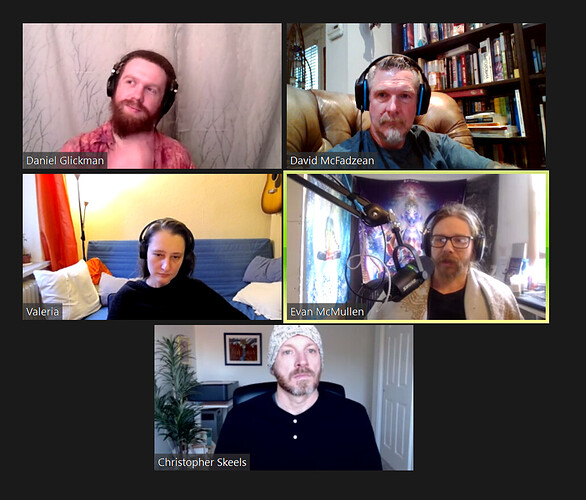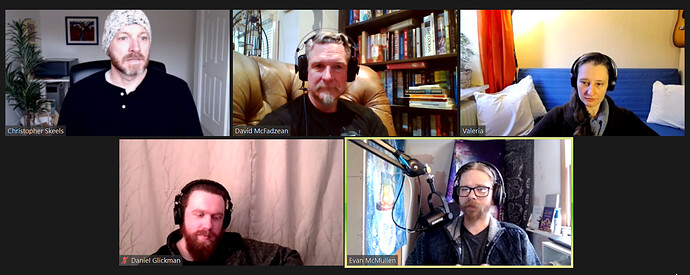Oct 9 #49
Just @dglickman and me this week, staring into the abyss. We had quite a wide-ranging discussion starting with a discussion of the varieties of modern Buddhism (inspired by a recent Stoa session) before circling back to Nihilism.
We speculated on whether wars between branches of the same religion were primarily a European phenomenon (Google suggests probably not) and whether Confucianism counts as a religion and why there was no good English word for traditions like Stoicism and Confucianism that occupy religion-like territory without being religions in the same sense as the typical world religions.
We joked about training GPT-3 on the Chapman corpus to get some additional insights, but the more we talked about it, the more it sounded like a good idea for a future project.
I offered my own attempt at defining the meaning of meaning in a way that relates the various senses of the term, from the meaning of a sentence to the meaning of life.
The point is that [[truth]] always depends on the [[meaning]] which is created by agents through the process of [[interpretation]]. The necessary implication is [[truth]] cannot be [[objective]]. The postmodernists were right.
So the meaning of something is how it is interpreted by an interpreter. The meaning necessarily depends on the interpreter. For the record, @dglickman seemed skeptical that my definition captured the essence of the concept. ![]() We tried to nail it down by looking for extreme examples at the simple end of the spectrum, worms and thermostats. Does it makes sense to say the thermostat interprets the value of the thermometer as an ambient temperature? I conceded probably not, it has no concept of ambient temperature. Maybe the difference between the temperature value and its set point can be interpreted as pain or discomfort? We went off on a tangent discussing the difference between pain and suffering without arriving at any conclusions, which led to another discussion about aporia.
We tried to nail it down by looking for extreme examples at the simple end of the spectrum, worms and thermostats. Does it makes sense to say the thermostat interprets the value of the thermometer as an ambient temperature? I conceded probably not, it has no concept of ambient temperature. Maybe the difference between the temperature value and its set point can be interpreted as pain or discomfort? We went off on a tangent discussing the difference between pain and suffering without arriving at any conclusions, which led to another discussion about aporia.
I mentioned I had recently seen a picture on twitter depicting Nihilism as a whirlpool endangering a nearby ship, and how it was a good metaphor for navigating the space between stages 4 and 5 while avoiding the nihilistic abyss of stage 4.5. Found it:
I mentioned my loss of faith in objective meaning (Eternalism) was similar to my loss of faith in objective truth and objective value, for similar reasons. We discussed the nature of objectivity which turns out to be a fairly tricky concept involving counterfactuals (theoretical observers rather than the lack of any observers). For example, what would the moon have looked like from the surface of the Earth one billion years ago, before anything had evolved eyes to look? Still depends on who you imagine is looking.
We discussed the possible futures of Landry’s Immanent Metaphysics. Will it one day be regarded as a great work? Very difficult to assess from this vantage point, but we agreed it was possible. Since it is possible, then it will definitely happen in some fraction of future timelines from my Everettian many-worlds perspective. We wrapped up by talking about how measure theory applies to infinite timelines and probability, suggesting an appropriate article for next week if we want to continue the discussion along those lines:







